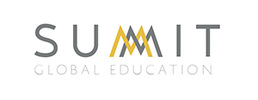BUS 318: International Business
Purpose:
Introduction:
Course Description:
Course Objectives: Upon successful completion of this course students will be able to:
Students:
Prerequisites:
Course Requirements:
Teaching Procedures and Methodology:
Readings:
Supplementary Readings:
Recommended Additional Readings:
Team Project (Market Entry):
I. Product and Company Selection
II. Market Analysis - Brazil
III. Market Entry Strategy
IV. Location
Team Project - Deliverables:
Academic Hours
Components of Final Grade: Midterm exam 20% Final exam 30% Team project 20% Participation 10% Introduction to Brazil 20% Grading Scale: A 93 - 100% A- 90 - 92.9% B+ 87 - 89.9% B 83 - 86.9% B- 80 - 82.9% C+ 77 - 79.9% C 73 - 76.9% C- 70 - 72.9% D+ 67 - 69.9% D 63 - 66.9% D- 60 - 62.9% F Below 60% Useful Websites:
Credit Transfer:
Host University:
Academic Integrity:
Language:
Course Content:
Module 1
Module 2
Module 3
Module 4
Module - International Business - Additional topics
Module - Introduction to Brazil
|
| ||
Note: course offerings are subject to change.



